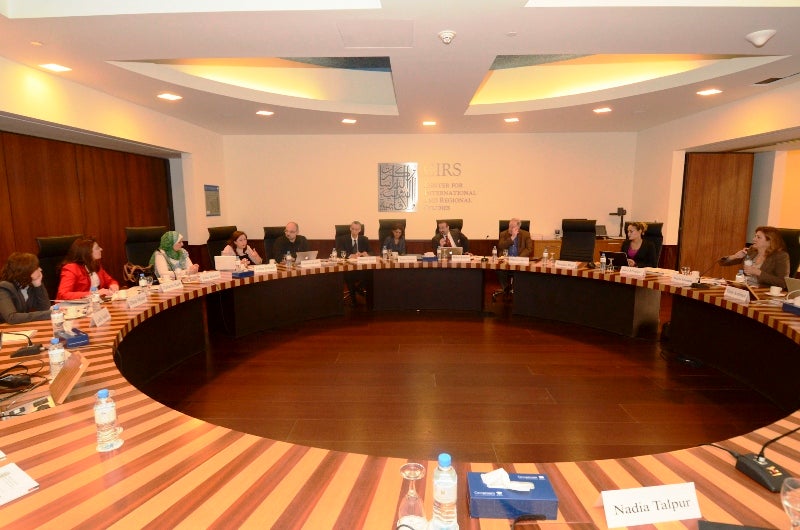Background and Scope of the Project

The historic events of the Arab Spring have been accompanied by profound changes in the role of the traditional and new media across the Middle East. Early on in the uprisings, the printed and electronic media played critical roles in disseminating information, and often even conveying compelling sentiments, within and across national boundaries in countries such as Tunisia, Egypt, and Libya. As the uprisings gained in both intensity and scale, new media, in the form of Twitter, Facebook, and the Blogosphere joined satellite television in helping facilitate popular mobilization aimed at overthrowing authoritarian establishments. Today, satellite television and the internet have also become consequential in countries where popular uprisings are being cast in a sectarian light by some national and international actors, most notably in Bahrain and Syria.
In line with this, in the 2012-2013 academic year CIRS is launching a research initiative on “Politics and the Media in the Post-Arab Spring Middle East.” The purpose of this project will be to explore the role of traditional and new media across the Middle East in the events leading up to the Arab Spring, during the national uprisings, and changes to the media’s roles and functions as the Middle East’s decades-long national and international orders undergo dramatic change.
Some of the areas we hope to address through our efforts include:
1. The Role of the Press in the Middle East (Ideology of the Press, Citizen Journalism, Moving to the Digital Age, Re-Politicization of the Middle Eastern Press, Censorship and Self-Censorship).2. Community Radio in the Middle East3. Who is telling us the stories? The politics and personalities of Arab Journalists.4. Public Opinion and the Public Sphere in the Middle East5. Media as Foreign Policy : Qatar and Al Jazeera6. The Limits and Challenges for Middle Eastern Media (Constraints of Media presence under authoritarian regimes).7. Censorship and Free Speech in the Middle East8. Media and Democracy: Informing Subjects Instead of Citizens9. The Globalization of Media in the Arab Spring (Impact of regional news outlets on the global context and global impact on local news; the flow and counter flow of information)10. Iran: The Twitter Revolution11. Iranian Media’s Transnational Role12. Media and State Security in the Gulf States13. Political Islam and Media in the Middle East14. Sectarianism and Media in the Middle East15. Non-state actors and the Media: A Case Study of Hezbollah16. Media Cities: The Political Economy of Media in the Arab World17. Media, new Pan-Arabism and Pan-Islamism in the Middle East18. Identity and Media in the Middle East19. Multi-vocality and the Media in the Middle East (how are different voices, women, minorities etc.. are represented through/engage with the media)20. Media and the Youth in the Middle East21. US Public Diplomacy in the Middle East: How non-indigenous satellite news is winning or losing hearts and minds22. Fundamental TV in the Middle East (Tele-evangelism and TV Clerics)23. Censorship and Islamophobia – The Cartoon Wars24. Middle East Media in Peace and Conflict (How do local media outlets report on local conflicts? How did they cover the Arab Spring?)25. Activism, Social Movement and the Media26. The Middle East Post-Wikileaks
Article by Zahra Babar, Assistant Director of Research at CIRS